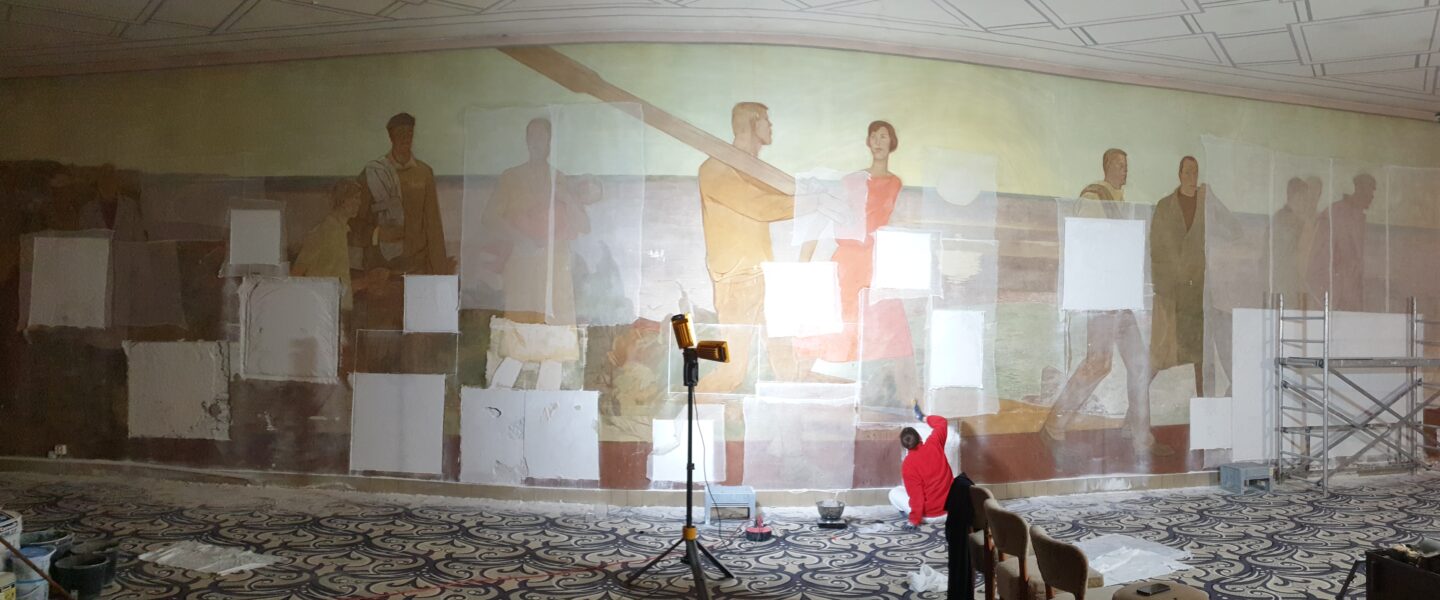Studies

To a great extent, cultural heritage and conservation is an interdisciplinary field, and encompasses a basic knowledge of philosophy, the history of art and architecture, as well as the specific fields of study related to restoration and conservation, including conservation theory, chemistry, structural physics, the science of materials and engineering, etc. Besides the auditory academic work, various practical training programmes and specialised trips in Estonia and abroad are an important part of the studies.
What skills will I acquire?
- An understanding of the role of heritage conservation in society and its importance in the appreciation and protection of the cultural heritage, and a familiarity with the international and Estonian legislative documents related to heritage conservation
- Basic knowledge on the philosophy, theory and history of heritage conservation as well as the history of culture, art and architecture
- Knowledge about the principles and practices related to the preservation, conservation and restoration art-related and architectural treasures
- Knowledge on how to collect, select, analyse, synthesise and critically assess specialised information; to research architectural and art-related heritage; survey and document, as well as evaluate the technical condition of the objects, and assess their historical and aesthetic value
- Knowledge on how to compile special cultural heritage requirements, restoration concepts, as well as assess the quality of restoration projects and their conformity to the legislative documents related to heritage conservation
- Knowledge on how to restore and conserve artworks
- The vocational preparation that enables you to apply for professional qualification as a conservator or for a heritage conservation certificate of competence.
What jobs will be available after I graduate?
- Conservator in a museum or conservation workshop
- Employee of the National Heritage Board, the Tallinn City Culture and Heritage Department; employee at one of the ministries or museums; or an independent entrepreneur in the field of heritage conservation and restoration
- Writer of research papers and special cultural heritage requirements
- Inspector of conservation and restoration work
- Faculty member teaching cultural heritage and conservation
CURRICULUM
BA Curriculum
BA 1st year: Theoretical general studies subjects, basic knowledge necessary for the speciality;
BA 2nd year: Theoretical and practical subjects related to the various specialisations;
BA 3rd year: Theoretical and practical subjects related to the various specialisations, preparation of the bachelor’s paper.
MA Curriculum
A systematic review of the theory, concepts, practices and legislative framework for cultural heritage and conservation, as well as in-depth knowledge of a narrower field of the speciality, which is expressed in a theoretical and practical research paper – the master’s thesis.
PhD Curriculum
An international level of theoretical and practical knowledge related to cultural heritage and conservation, which is expressed in an independent theoretical and practical research paper – the doctoral thesis.
